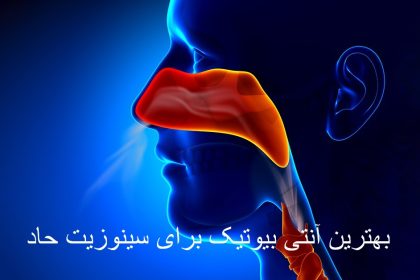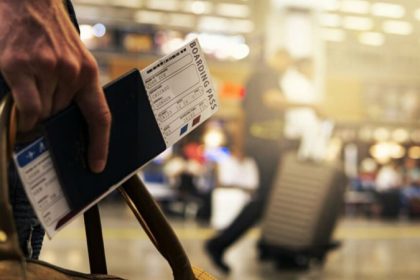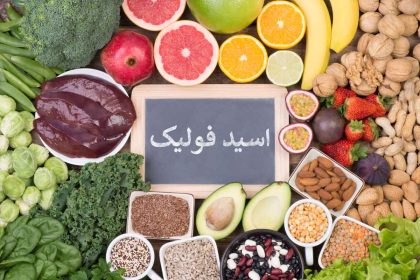The question of most of the fasting people is, what should we eat in Ramadan so that we feel less hungry and thirsty? With proper nutrition, hunger can be controlled to some extent and dizziness, fatigue, hypoglycemia, headache and excessive thirst can be prevented.
It is better during Iftar and Suhr meals Ramadanused healthy and fresh healthy and nutritious food so that we can fast and our health is not endangered.
We hope that after reading this article, you will no longer need to ask what to eat in Ramadan.
Tips to prepare the body for fasting
Before the arrival of Ramadan, it is better to prepare your body to endure hunger and thirst throughout the day by following a few simple tips.
Eliminate extra snacks
Set bedtime
Eating healthy snacks such as dates, nuts and dried fruit to boost energy
What should we eat during the dawn of Ramadan?
Consuming enough protein and calcium (eggs, chicken, fish, red meat, almonds)
High consumption of protein foods (meat, chicken, dairy and fish) alone causes thirst.
Eating foods containing fiber such as whole grains, pasta, fruits and vegetables
To prevent thirst, drink two glasses of water half an hour before eating suhoor.
Consume foods containing fiber (fruits and vegetables) at dawn.
Eat fruits and vegetables that contain water (watermelon, cantaloupe, peaches, pineapples, strawberries, oranges and vegetables such as lettuce, tomatoes, cucumbers and celery).
Do not eat breakfast, soft drinks, tea, coffee, Nescafe and caffeinated substances that cause dehydration and cause thirst.
Eating carrots, beets, broccoli, spinach, mushrooms, and steamed pumpkin along with breakfast can help us to be less thirsty during the day.
Eat a glass of milk or yogurt in the morning.
salty, spicy, fatty and fried foods such as fried chicken, steak, all kinds of coco and cutlet or head over heels do not eat
Canned foods cause thirst and are not suitable for breakfast.
Eat whole grain breads. White bread, sweets, sweet cereals and cookies are not suitable for breakfast.
Replace fruit with juice.
Eat raw or cooked vegetables and juicy fruits like bananas and oranges.
Eat legumes, nuts and seeds in the morning.

Sometimes, replace meat with mushrooms for breakfast.
Drink water, syrupy seeds, khakshir and herbal teas. Tea is not enough.
Sahar dried figs soaked in water, dates and plums
In the morning, use olive oil, coconut oil, butter and animal oil from cow’s milk that has been fed on fresh grass.
Drink chicory sweat.
Eat boiled foods and juicy, low-salt stews.
In the morning, to prevent thirst, especially on hot days, drink lukewarm water with a few drops of fresh lemon juice.
Do not eat zolbia and okra and very sweet foods during the morning meal because they increase the feeling of hunger with blood pressure drop.
Do not sleep directly after eating suhoor.
Low-salt bread and cheese with vegetables or walnuts with a glass of milk is a suitable breakfast.
Adjust the time so that he has enough time to eat and drink without rushing.
Eat a main dish for breakfast.
Do not eat large amounts of food in the morning.
Do not drink buttermilk or syrups that have white sugar in the morning.
Sahar Kharma and coconut milk eat.
Important points about iftar and dinner
Prepare the stomach by eating soup containing fresh nutrients

Do not drink colored tea or coffee when breaking the fast.
Drink lukewarm water, a cup of milk and honey, honey syrup, pale tea or water and lemon juice.
Eating one to two hours after breaking the fast
Substituting fruits instead of zolbia and okra
The iftar meal should be light so that it is digested quickly and the stomach is ready for dawn.
Break your fast with warm food and some sugary foods.
Break your fast with warm water or lukewarm milk.
Avoid drinking cold water.
Eating vegetables and radish, cucumber, tomato and broccoli salad with dinner

Between iftar and dinner, it is good to drink two glasses of water.
Do not drink water between meals, directly before or after meals. Drink 2 glasses of water shortly after eating.
Before going to bed, drink fruits such as watermelon, grapefruit, cantaloupe, peeled apples, or water or milk.
Between iftar and dawn, eat low-fat milk and natural juices, water, low-salt buttermilk, and cooked fruits and vegetables.
After eating iftar, eat soaked plums and figs and fruits such as pears, peaches and watermelons.
Do not eat too many snacks after dinner.
Between dinner and Suhoor, you can eat snacks such as ice cream, nuts and seeds, fruit, halvah, some sweets, porridge, rice milk and honey.
Other points
Drinking enough water (at least 2 liters of water a day during Ramadan)
Eating slowly prevents overeating.
An adult should drink at least two liters of water (8 to 12 glasses) a day during Ramadan.
Reducing the consumption of salt and spices that cause dehydration.
Control the amount of the meal
After breaking the fast, be physically active and take a walk.
Put raw sprouts in the salad.

What should we drink in Ramadan?
Suitable syrups to prevent thirst
Sherbet eggs, khakshir, lemon juice syrup, lemon syrup
dawn What should we eat in Ramadan?
All kinds of stews, types of pilaf, types of techin, grilled chicken, etc. are suitable for breakfast.
(Gheeme, vegetable ghee, celery, plum, spinach, plum, artichoke, fesanjan, okra, eggplant stuffing, eggplant stuffing, green peas and dill, stew, Nisar stuffing, almond paste, okra stuffing, etc.)
(checkered techin, pounded kebab techin, fish techin, meat and vegetable techin, mushroom and eggplant techin, etc.)
(lentil pilaf, shirin pilaf, Shirazi pilaf bean, bean pilaf, shrimp pilaf, cabbage pilaf, cherry pilaf, dill pilaf with beans, barberry pilaf, biryani pilaf, rice noodles, pilaf beans, etc.)
Types of food (grilled dice, chicken and vegetable food, pumpkin food, chicken grilled dice, etc.)
iftar What should we eat in Ramadan?
For iftar meals, soups and soups that are light and warm, as well as coco and cutlets, boiled eggs, soufflés, alwieh salad, dumplings, samosas, purees, gratins, curds and eggplants, halim eggplants, Mirzagasmi, etc. are suitable.
(Kermani noodles soup, soup noodles, Amaj soup, Shuli Yazdi soup, Hamadani rice soup, Abadani soup, Malair rice soup, Tabriz Keshk soup, Khorasan soup, soup soup, tomato soup, yogurt soup, Tabrizi Abghora soup, Shirazi vegetable soup)
(Broccoli soup, milk soup, white barley soup, white soup, vermicelli soup, corn soup, creamy mushroom soup, broccoli soup)
(wheat milk, meat milk, Isfahani eggplant milk, eggplant milk, etc.) and lentils
(Indonesian salad, Alwieh salad, etc.)
(Broccoli coco, spinach coco, chicken coco, chicken and bean coco, mushroom coco, cauliflower coco, zucchini coco, macaroni coco, pumpkin and carrot coco, etc.)
- All kinds of cutlets and dinner
(Shirazi cutlet, soy dinner, poke dinner, Isfahani dinner, rice dinner, fish cutlet, tuna cutlet, corn cutlet, eggplant cutlet, etc.)
Types of dumplings, piedeh, burek and strudel

Desserts suitable for iftar
All kinds of halva, rice milk, porridge, yellow shell, dessert or dates, etc. are suitable.
What to eat in Ramadan from the point of view of traditional medicine
Those who suffer from stomach ache after fasting should mix and eat some mangrove and khassher at dawn, and drink a glass of mint juice with candy or honey during iftar.
Try to sleep an hour after suhoor and do not sleep immediately after eating suhoor.
Try to use stew for breakfast, such as pumpkin stew or aloe stew or okra stew.
If you want your mouth to smell less during fasting, wash your mouth with water and salt after brushing at dawn.
During the Iftar meal, try to break the fast with dates and lukewarm water or a glass of heated rose water.
Bread, cheese and vegetables should not be at the beginning of iftar, it is harmful for the stomach. It is better to eat iftar with warm soup or porridge or wheat flour halva.
Fasting people whose kidneys have stone formation should eat a glass of itchy sweat at dawn.
Do not eat yogurt in the morning meal.
Try to use sesame and olive oil at least this month.
During the Iftar meal, you should eat soft, easily digestible and fast-absorbing foods so that the body can supply its lost energy in a short time.
These foods include; It is unbeaten meat broth, honey egg, barley soup, vegetable feed, fig jam, honey, vinegar with juice and raspberry jam.
The use of ice water and any syrup with ice in it, and watermelon and cool fruits next to the Iftar meal is not approved by traditional medicine scholars in any way, because it will be the main cause of digestive problems and will cause fatty liver disease, gallstones and many other diseases.
The best ingredients to eat between iftar and dawn are syrups and fruits.
Lemon juice syrup, barberry juice, Angbin vinegar and chicory extract with honey are very good for those who have a hot temper, and those with a cold temper should use less.
Fruits such as watermelon, cantaloupe, cantaloupe, cherries, cherries, apricots and cherries are recommended to be eaten two hours after breaking the fast.
It is recommended to use tomato, cucumber and lettuce salad for breakfast.
The use of yogurt causes spoilage of meat dishes and the stomach suffers from digestive problems.
The benefits of drinking hot water during iftar
1) It washes the liver
2) Makes the mouth fragrant
3) Strengthens the teeth
4) strengthens the eyes
5) Washes the stomach
6) Calms the excited veins
7) Removes bile
8) Removes phlegm
9) Reduces stomach heat
01) Relieves trouble.
RCO NEWS
RCO


















